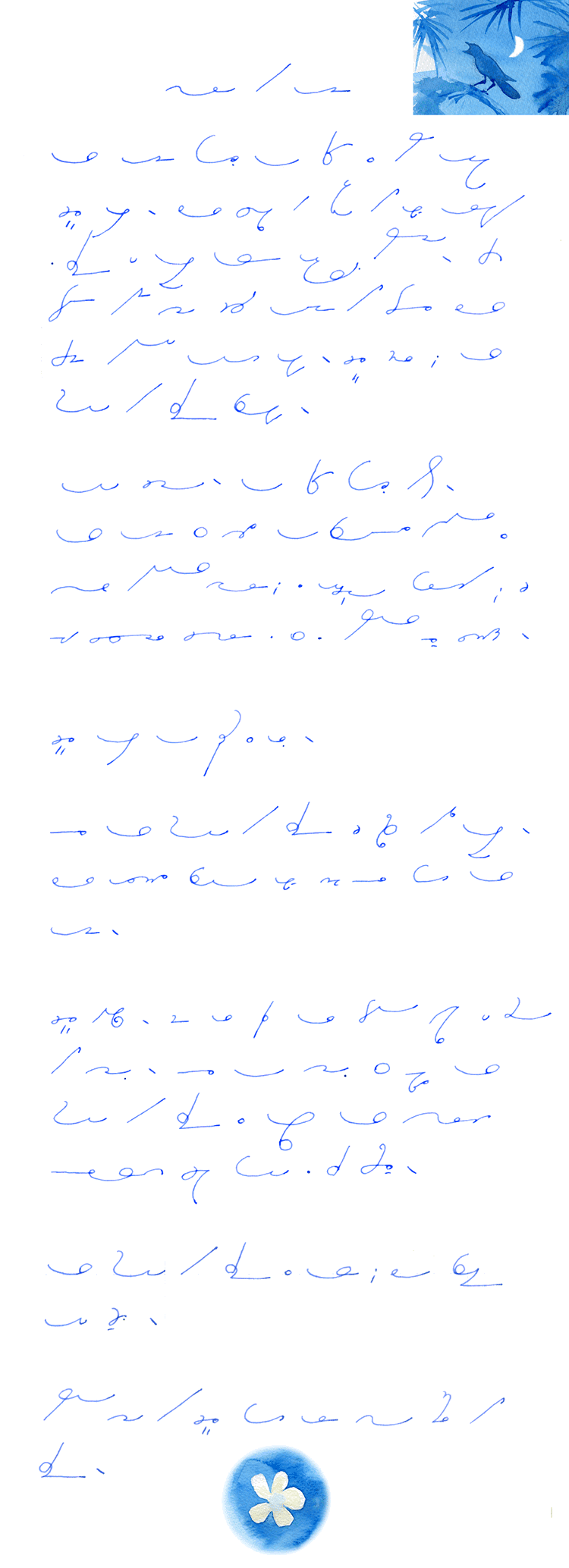Hello,

Here is a Persian poem, whose poetic form is called Ghazal.
I will send later the link where I found this poem… I didn’t find the name of the author on this page.
Edit: Changes made.
The Gregg Group was founded 22 May 2004, prompted by the lack of online shorthand resources. As the primary use for shorthand — business and legal recording — has waned in recent decades, we generally acclaim the skill as a hobby or personal tool. The purpose of the group is to promote the use of Gregg systems of shorthand by providing advice to beginners, support for students, and an association of users of this efficient, attractive, and enjoyable method of writing.
Hello,

Here is a Persian poem, whose poetic form is called Ghazal.
I will send later the link where I found this poem… I didn’t find the name of the author on this page.
Edit: Changes made.
You must be logged in to post a comment.
Love the blue pen, very appropriate, :-).
1. The circle on rêve on the second stanza and on lèvres on the third is a little big.
2. The b of au bord in the same stanza looks like a p.
3. The ending -min in jasmin in the third stanza looks like an m.
4. I would have added the e-left s to resplandissant in the same stanza (just like writing disant).
Hello, Carlos,
I began to think it was perfect…
1. The circles in the first appearances of "rêve" et "lèvres", you mean… They don't look so big but… ok, I will change them.
2. For "bord", I totally agree: the "b" is too small.
3. "Jasmin", that's right, I tend to draw the line of "min" not long enough. (For a name of flower, I find the form not very elegant…)
4. And on this one, I disagree. (May I?). You mean the ending of "resplendissante", right? In the Sénécal manual, at the chapter 54, page 25, the point at the end of the form is both used for "ant" and "issant". (For the record, this adding of "iss-" is the mark of verbs of the second group in French, which is not the case of "dire").
It's strange to say that but… thank you for criticize me. (At least someone reads me…)
🙂
For #4, I found out that the period for -ant rule was simplified after the Anniversary (Sénécal) series, so you're excused, :-). (It didn't occur to me to check the manual before.) Thinking about it, it is an odd rule to use the period for -issant as well, since -issant and -isant sound almost alike. But heck, what do I know.
Not so odd… The "issant" ending (2nd group) has the same value (grammatically) as the "ant" ending (1st group). Putting just a period keeps the verbal base recognizable. As for the third group… the group of the rest… they're an odd group. These verbs change a lot, have their own rules. "Dire" is one of them. I suppose that, with these verbs, you have no choice but to be more "phonetic"…
I made the changes and here is the link to the page where I found “Clair de Lune”:
https://www.larevuedesressources.org/ghazels-poemes-persans,2608.html
🙂
Nice! I was wondering what the name was. In the case when a proper name is foreign or if the name is difficult to figure out, it is customary to write it in longhand when it first appears, and later on in shorthand.
Point taken, Mr Carlos!